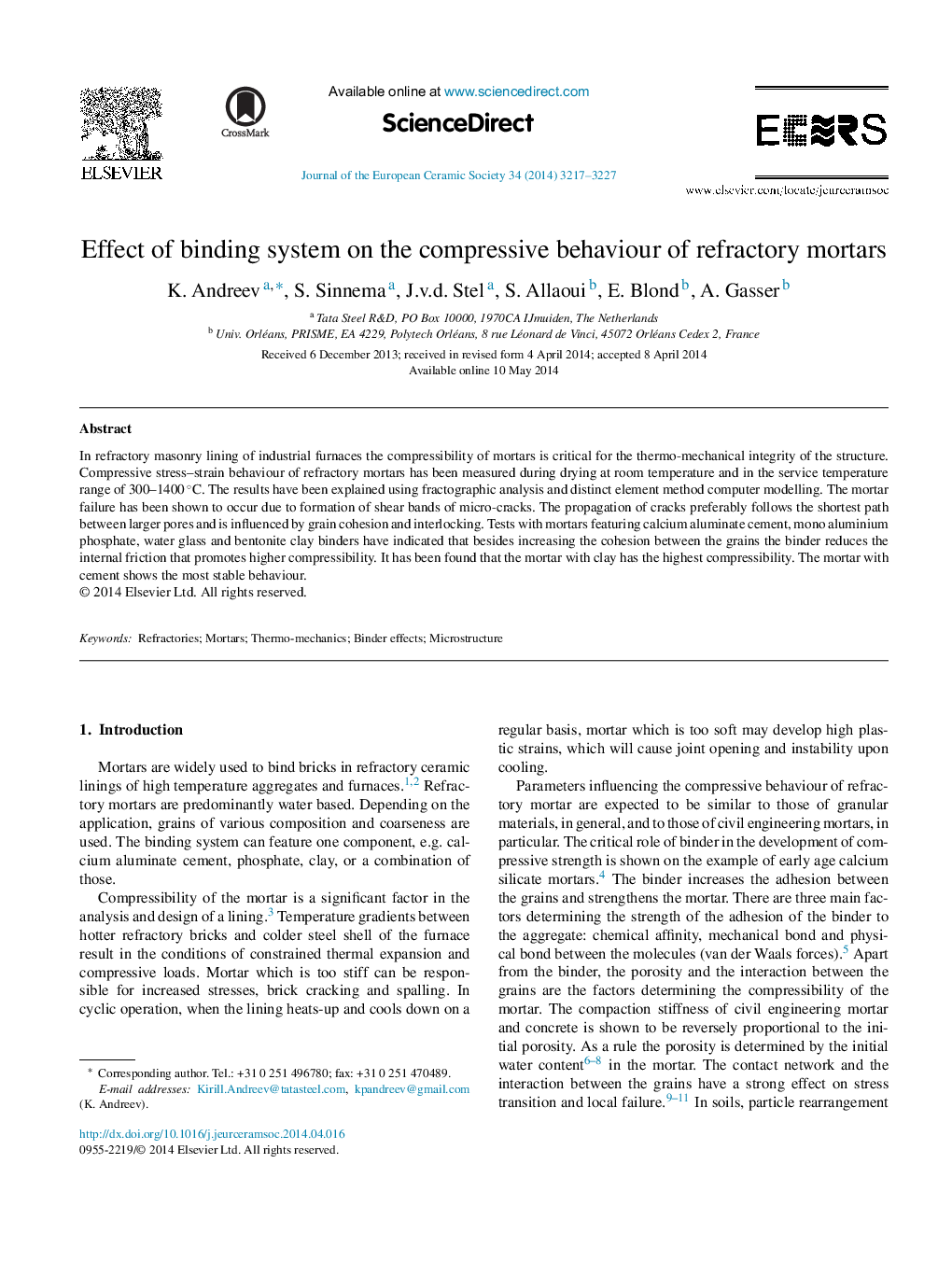| Article ID | Journal | Published Year | Pages | File Type |
|---|---|---|---|---|
| 1473888 | Journal of the European Ceramic Society | 2014 | 11 Pages |
In refractory masonry lining of industrial furnaces the compressibility of mortars is critical for the thermo-mechanical integrity of the structure. Compressive stress–strain behaviour of refractory mortars has been measured during drying at room temperature and in the service temperature range of 300–1400 °C. The results have been explained using fractographic analysis and distinct element method computer modelling. The mortar failure has been shown to occur due to formation of shear bands of micro-cracks. The propagation of cracks preferably follows the shortest path between larger pores and is influenced by grain cohesion and interlocking. Tests with mortars featuring calcium aluminate cement, mono aluminium phosphate, water glass and bentonite clay binders have indicated that besides increasing the cohesion between the grains the binder reduces the internal friction that promotes higher compressibility. It has been found that the mortar with clay has the highest compressibility. The mortar with cement shows the most stable behaviour.
